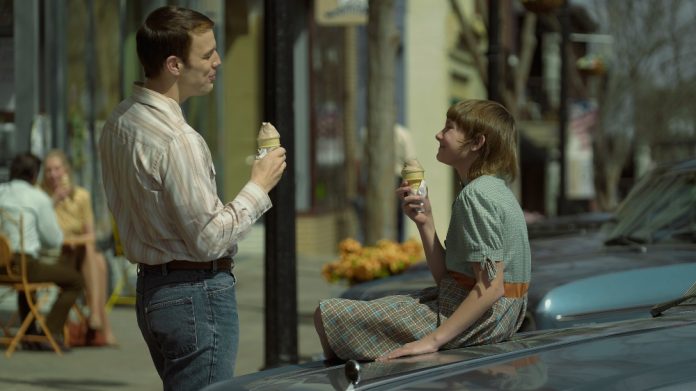For Jan Broberg, the Peacock series A Friend of the Family couldn’t get any more real, as it was her story, and watch it unfold over the course of a limited series was upsetting, to say the least.
Broberg was the 12-year-old daughter of loving parents when she was groomed and eventually kidnapped in broad daylight right under their nose by Robert “B” Berchtold, a neighbor and family friend. Though many have expressed interest in helping Broberg tell her side of the story over the years, she couldn’t ignore the call she received from The Act co-creator Nick Antosca, who was eager to dramatize the bizarre circumstances of her kidnapping and help Broberg show her parents in a positive light.
She insists they “were not the monsters” portrayed in the Netflix documentary Abducted in Plain Sight, and decided to collaborate with Antosca to turn her story into a nine-episode TV miniseries.
An actress herself, Jan Broberg (Maniac, Everwood) got involved in all aspects of production, from sitting in the writers room of A Friend of the Family and answering poignant questions posed to her by Antosca, to giving her invaluable input in set design, costumes, and especially casting. Who better than Broberg to know the qualities these actors needed to possess to portray herself (Hendrix Yancey at 12 and Mckenna Grace at 16), her parents (Anna Paquin and Colin Hanks), and most importantly, Berchtold (Jake Lacy).
Above the Line recently spoke with Jan Broberg via Zoom, where she was promoting the Peacock series as well as her new book, The Jan Broberg Story: The True Crime Story of a Young Girl Abducted and Brainwashed by a Friend of the Family. Jan talked about how the series serves as a cautionary tale that will help viewers recognize the nefarious signs of grooming, and how she hopes that the series contributes something new to the conversation about pedophilic abuse, which unfortunately continues to this day. In response, she has created the Jan Broberg Foundation, which helps victims of abuse heal and thrive.
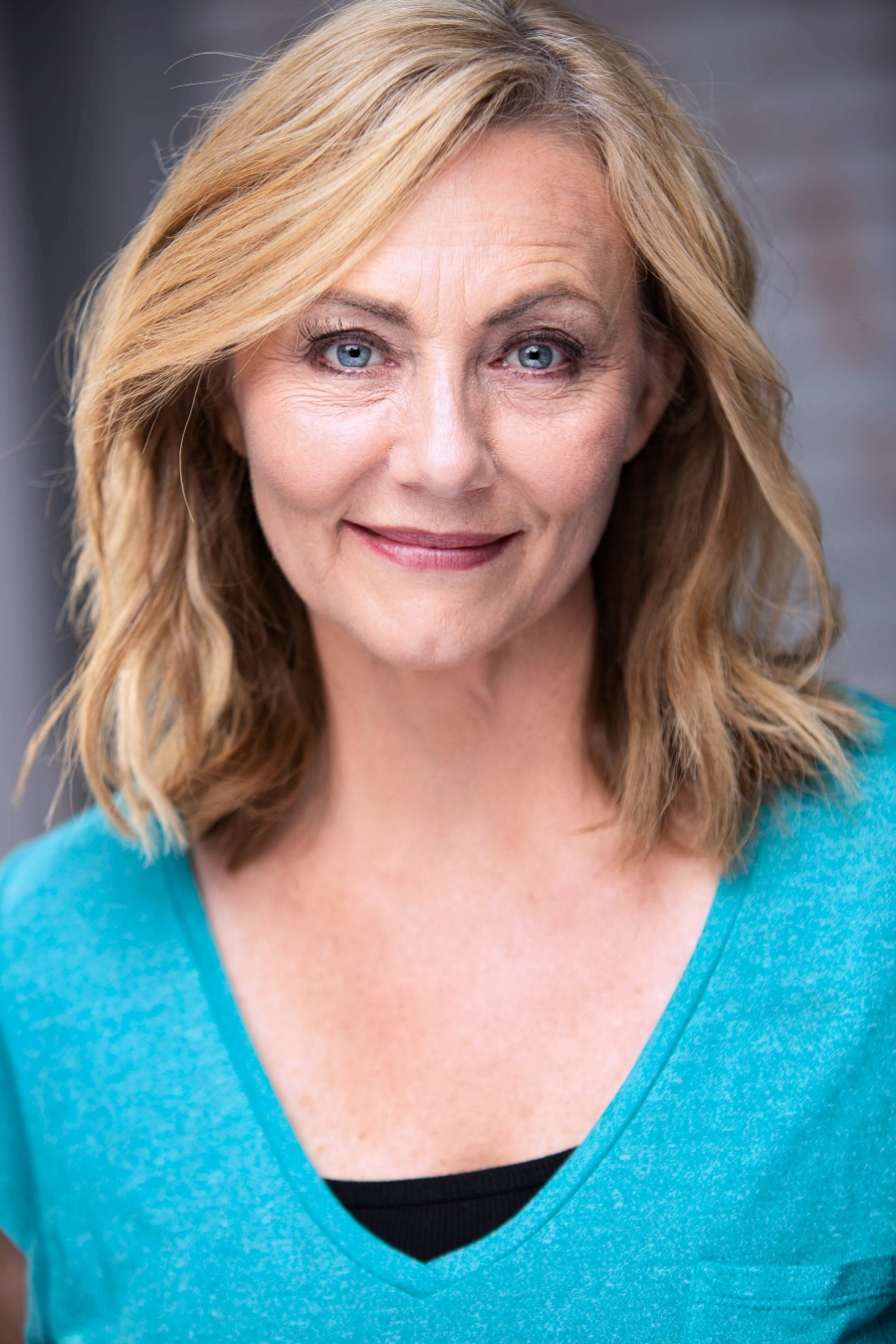
Above the Line: Let’s start from the beginning. Tell me how the project began.
Jan Broberg: I got a phone call from Nick and (EP) Alex Hedlund. The first basic words out of Nick’s mouth were, ‘How are you doing? How’s your family doing? This must be really hard.’ I was so taken aback because I’d had lots of phone calls and lots of people reaching out and saying, ‘We’ve got to do something more with this story.’ I wasn’t prepared for the backlash of people misunderstanding my parents (from the documentary), because I had wonderful parents. But there was something so genuine that it was a message of just plain concern.
ATL: How did the documentary misunderstand your parents?
Broberg: I thought people would understand grooming because my parents were victims, too, and they didn’t. If something had happened to people around the world as it went around the world, I would get thousands of messages thanking me and thanking my parents. I can now tell my mom about my stepdad, “You provided me with words.” I got a lot of those, but there were enough people [who] seemed to just criticize or blame my mom and dad, and I thought, “The bad guy in my story is that guy. Right?”
ATL: How did A Friend of the Family set the record straight?
Broberg: My parents were wonderful, sincere, and kind, and they might have been naive, but it was the ’70s. Nobody knew what the word “pedophile” really meant. They had heard of a child molester, and there was no way on Earth that they thought that would even be possible (about Berchtold). I mean, he was truly our best friend. I have a lot of dear friends, especially those [who] were so upset, almost, at the first documentary, because they were like, ‘Your parents are the most wonderful people on the planet.’ It left them looking like they were dumb, complicit, or knew something. They didn’t. And family members, my cousins, and both sides of my family — my mom’s side and my dad’s side — you know, my aunts and uncles [were] all just like, ‘Your parents… We feel bad.’ And now they’re all coming back, and they’re like, ‘This is so perfect. It’s so good. It’s so real. It’s so right.’ And I’m like, ‘It is.’ And it’s not embellished in any way. It’s almost word for word in some places.
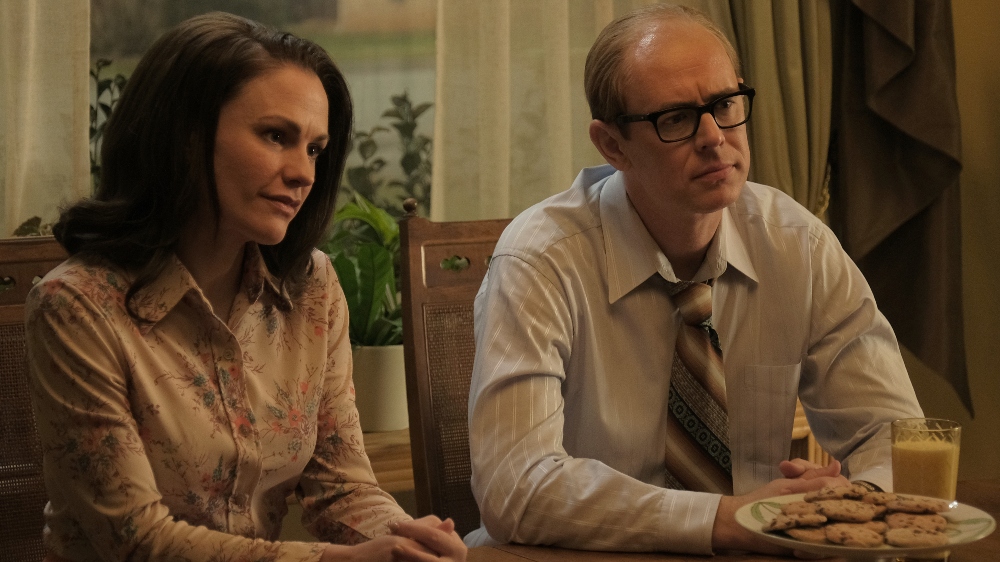
ATL: Let’s break it down a little bit. How did your input with the writers affect the series?
Broberg: I was really involved with the writers room and with the writers. Nick made me a part of that from the very beginning, from coming out to my home, collecting all the boxes of things we had, and then combining that with all of the FBI and police reports. So many things — boxes and boxes of stuff. In the writers room, I was able to tell personal nuances and stories and deepen their understanding of who we were, how life was, what our relationships were in our neighborhood with all of our variety of friends and with the Berchtold family, and why we loved them, and why it was so unbelievable that it happened.
In the writers room, they would ask specific questions and I would answer them as best I could and then give them some of that deeper nuance around the feeling of my home and my world — my neighborhood, which was a very safe, wonderful, and happy feeling. That part played a big part in the actual series because you have to understand that if we all could see the scary stranger, if they had some kind of sign, we would’ve ended child abuse by now, but we haven’t. In 2022, it’s just as prevalent, or worse than it’s ever been. Three of 10 children, two girls and one boy, were abused.
ATL: That’s so terrible. Not to change the subject too abruptly, but how did you liaise with the other departments and serve as a reference for them?
Broberg: I came to the set in Atlanta early on, before the actors were there, and got to meet with the art department and the wardrobe and costuming departments and, you know, costume designer Rebecca Gregg and production designer John D. Kretschmer, and all the people [who] were making the magic happen. I would take a look at the exteriors of our home and see how they were going to improve them to make them look even more like our house. and it was amazing. I got to play a big part.
ATL: As an actress yourself, did you sort of have a breakdown in your head of what each of these actors had to possess? For instance, played by Jake Lacy, Berchtold comes across as the most charming person on the planet, but he’s a monster.
Broberg: You had to have the most likable, charming, and affable guy — the kind of guy that all the ladies around the neighborhood would think, “Oh, he’s so cute and he’s so sweet. Oh, he’s so nice. He’s helping me again,” so that people can be drawn in. If that hadn’t been there, it wouldn’t have been truthful, for one thing. It would not have worked for someone else. My mother experienced the same thing. You know, Anna [Paquin] was an excellent choice because she possesses sufficient strength, but she’s [more] shy and timid. She’s very similar to my mother’s characteristics in the way she’s played her. Colin [Hanks], he looks so much like my dad. He just submerged himself in all those things. They adopted them and asked a lot of questions. We had great conversations with my mom and myself and Colin, and then with McKenna [Grace, the older Jan], with Hendrix [Yancey, the younger Jan], and with Lio [Tipton, who played Gail Berchtold], who didn’t have a lot to work on but we knew what to give her. Gail was like this — she was always cooking and involved with us kids. We learned how to paint ceramics at her house. She was very sweet, and she loved her kids. All of them got enough from their own lives as parents, or from imagining how I would be as a parent, to play the roles honestly and with depth. Austin Stowell [plays] the FBI agent. He looks so much like Pete Welsh. Well, he’s better looking in a way, but he’s just so perfect for Pete, whom we loved. He was a lifelong friend. He just died a year-and-a-half ago. We were so fortunate with the cast that was a part of this.
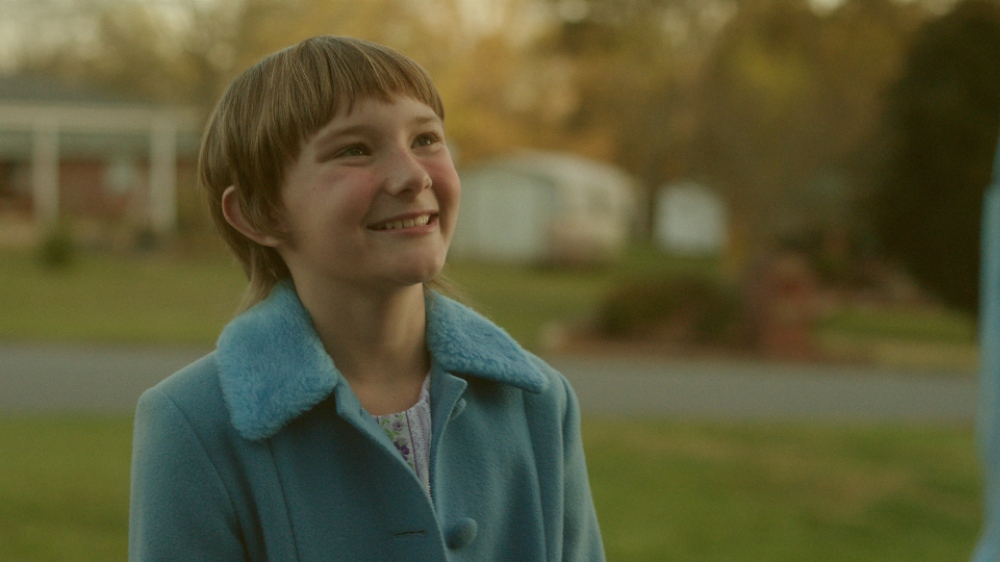
ATL: What about the actors playing you — the young actress, and then the older actress? What did you say to them?
Broberg: You know, it’s interesting because, with Hendrix, who played the younger version of me, we’ve had some just fun conversations because the most important thing was for her to be who I think she already is, which is like looking at myself: very bright, very much an actress. I mean, that’s who I was as a kid. I’ve been performing on stage since I was seven years old. I was around adults. I knew how to have fun. I knew how to be quiet when it was important. I knew how to memorize my lines. I was that kid, full of light and full of energy, and that’s who Hendrix is, and she brought all of that.
When she’s crying in the motor home, terrified of this man she thinks is her second father or favorite uncle, it just made me so furious with him. I was like, “How do you do this to a kid? And not only me, but other children that I now know that you also raped?” I can’t stand it. I can’t stand that sort of thing. McKenna and I had a little more conversation around the story and other things, but we also just got to know each other like they were my friends. I’m wearing the necklaces they gave me. The two hearts are from McKenna, and the one heart with the key is from Hendrix. And this heart represents my heart to them.
ATL: I saw the documentary after I watched the series because I was so curious, and I want to ask you, was it your intention not to be as sexually explicit in the Peacock series as it was in the documentary?
Broberg: The intention was that we wanted people to know and have that be implied, but we didn’t want to put any of our young actors or our adult actors through anything that was not necessary. People’s minds fill in the blanks, and I really didn’t want to traumatize or retraumatize anyone in the series who had experienced sexual assault and abuse as children. They reached out to me. I’m not saying who, but we had conversations throughout the experience. We had an on-site counselor as well, who was there to talk to people.
ATL: You mentioned earlier that you get pissed off watching this show. I was yelling at the screen. What scenes for you were the hardest to watch?
Broberg: It was anything that had to do with the alien voice, because it was so terrifying to me. Understanding that he had groomed that to be instantly terrifying over those two-and-a-half years of going to science fiction movies and watching everything from I Dream of Jeannie to Lost in Space to Bewitched on TV. It’s benign in this way until you go to the Twilight Zone, and then you go, oh yeah, to Star Trek. Then we’d go to the Tasty Treat, which is the home of the Space Burger because it’s a little alien-shaped burger, like bread in a circle [with] stuff inside, and all of a sudden you put all that together and he’s constantly talking about alien stories. That’s all real. There was no embellishment in the series. It was constant. It was kind of his thing, and he was doing all that kind of as a joke. But when little Jan wakes up to the sound of that voice, she knows immediately that she’s been taken by an alien. It’s not even like, how long did it take you to believe that or be brainwashed? I’m like, 10 seconds, because all of the seeds have been planted. He was so manipulative and calculating. He did all of that.
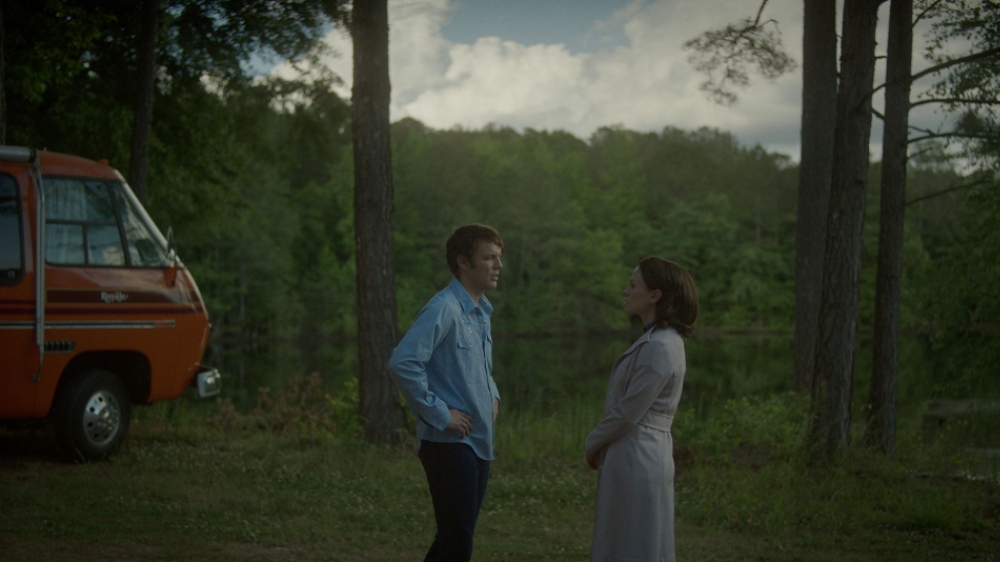
ATL: I think for the average person, Jan, it’s so hard to understand how somebody so bright can be taken over like this.
Broberg: You think, this obviously must exist, even if we don’t understand it, if you isolate a person and scare them to death and control when they can go to the bathroom and when they can eat, and you do that for a couple of days while they’re strapped to a bed, and you’ve already laid out all the seeds for two years. Or this must be the gathering of Israel coming from all planets from all over the earth, you know, using language from your religious background and training and just throwing in a few words. All of a sudden, you’re in the middle of a Jesus, Joseph, and Mary story. That’s one you’ve acted out your whole life as a kid at Christmas every year, and you’re now a part of that story on another planet. It’s very possible.
ATL: How did your mom feel watching the series?
Broberg: She watches the series over and over again almost every day. She’s watched it probably five or six times now. The best part is that whenever she sees Colin, she says, ‘Oh, there’s Bobby.’ She misses my dad. I’ve been pulling out some of the sweetest letters that they wrote to each other. It thrills me that she just relates to that character. She said the other day, ‘Oh, I can understand how I would’ve had a short-lived affair with that man’ (referring to Jake Lacy). Oh, I can see how I finally fell into his arms. That guy is so charming. He’s just like Berchtold.’
ATL: What was the most important thing to you to get “right” on the show?
Broberg: First and foremost, there are the characters, having the actors be relatable as real, layered human beings [who] were not stupid They were not cult members. That part was really important to me because I need people to relate to the story. Otherwise, they won’t see it in their own lives, and they won’t know the signs. They won’t see the grooming, and that was the whole point. My family was so exposed, honest, and vulnerable, and they told me everything. They said, ‘Well, if it helps somebody else see through somebody they’re dating, or, you know, [if] they think, how did I get here? I shouldn’t be here.’
Is it just about that mistake, or is it about something more, because that’s how predators operate? I just couldn’t stand for people not to get it. They will get it by watching the series. You should watch it more than once just to see how groomers and predators operate and how they manipulate you down the road to hell. Then they use your weaknesses to exploit you. We are all human and make mistakes, but when someone is manipulating those mistakes in such a nefarious way, you want people to understand how that happens. Who do I know in my life who thought I had a weird spider-y sense and then dismissed it because that’s impossible? He’s the school teacher of the year and everybody’s favorite soccer coach. I know all these stories, and they’re all true.
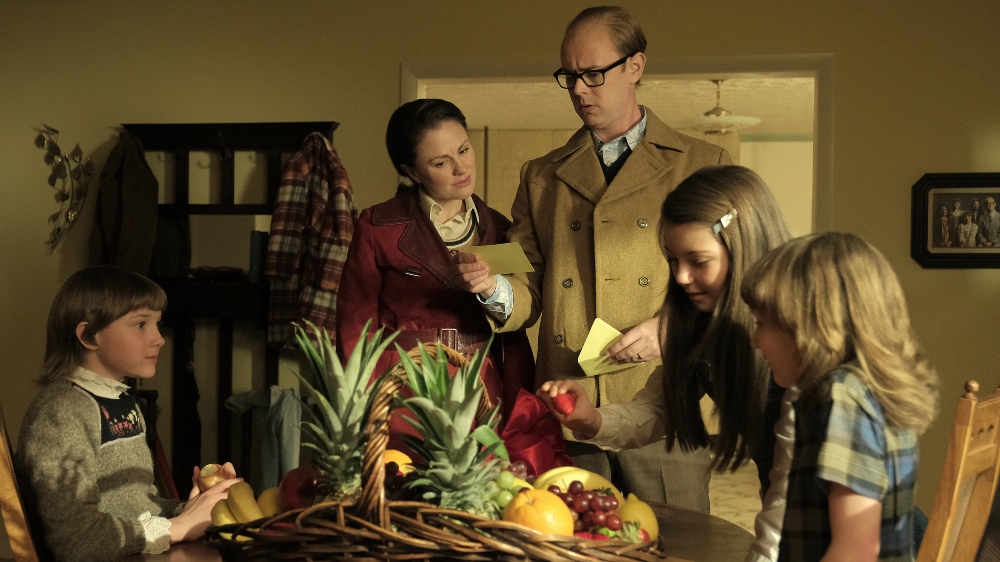
ATL: So where are you in your life today?
Broberg: Well, the documentary A Friend of the Family: True Evil (came out on Peacock on Nov. 15), so I’ll be embarking on a journey beyond my seventies, facing some of the things I hadn’t faced before, overcoming my fears, and being able to recreate my happy childhood at any age. That’s what I’m about. My life today is about my new book, The Jan Broberg Story, that my mom wrote and that [me] and my sisters contributed to, to tell even more details and more about grooming. It’s a page-turner. It’s the story, with a whole bunch of advice and things to look out for with grooming.
The Jan Broberg Foundation brings together survivors of sexual assault and abuse, as well as their family members or partners. It’s sort of like imagining AA and Al-Anon for sexual abuse survivors. It’s going to start as an online community where you can get support, therapy, and legal advice, and have a place where there are people who already get it. It’s that support piece that is missing for a lot of survivors out there who want to thrive but are stuck, or just want to continue on their healing journey. This doesn’t just stop. It’s always in secret and dark places and [it] has to come into the light. We have to talk about it. If we can heal ourselves, we can help others and maybe prevent it. The series is a huge awareness piece for me.
ATL: How do you hope the series can truly help someone who is a victim of abuse?
Broberg: If it can help somebody, we’ll put up with whatever backlash there is. Or if people don’t understand, it’s just because they’ve never been conned and most people have been, or it’s happened to them or to a loved one [who] they are close to. So that was really important. But it’s also because I want every family, every person watching the show, to fill in the blanks about their own abuse or the abuse of someone they know. I want them to relate to the story so much that we can start to do something to really change the numbers. They’re just terrible. And it’s because we still don’t talk about our own stories, we don’t take somebody seriously, or we think, “Oh, that was a long time ago.”
It does matter. That predator goes on to the next kid. Mine did until the day he died. There were others. People can be outraged in their own minds. I want people to be angry. I want people to start standing up and really looking for those subtle signs. so that people could see how groomers and predators work, how they manipulate you down the road to hell and then use things against you to exploit your flaws. We are all human. We’re all going to make mistakes, but when somebody’s manipulating those mistakes in such a nefarious way, you want people to understand how that happens.
ATL: In a way, you are healing every single day.
Broberg: I describe it as a perfect record. You’re born, you run and skip and jump everywhere, and then somebody comes along, something happens, and this big scratch occurs. It goes all the way down your record, and you think, “Oh, should I throw the record away?” No, the record is still worth it. You are still worth it. It’s going to beat you in the head, but you can get good at raising the needle past the scratch and going on with the beautiful music, and you get really good at moving the needle over and over again.
What I’m up to for the next 30 years is helping people have a happy childhood at any age. We wouldn’t have told our story if we didn’t think it could help other people. It’s only worth it to me if it really does move the needle on sexual child abuse. It’s just everywhere, and it’s got to stop.
A Friend of the Family is now streaming on Peacock.


